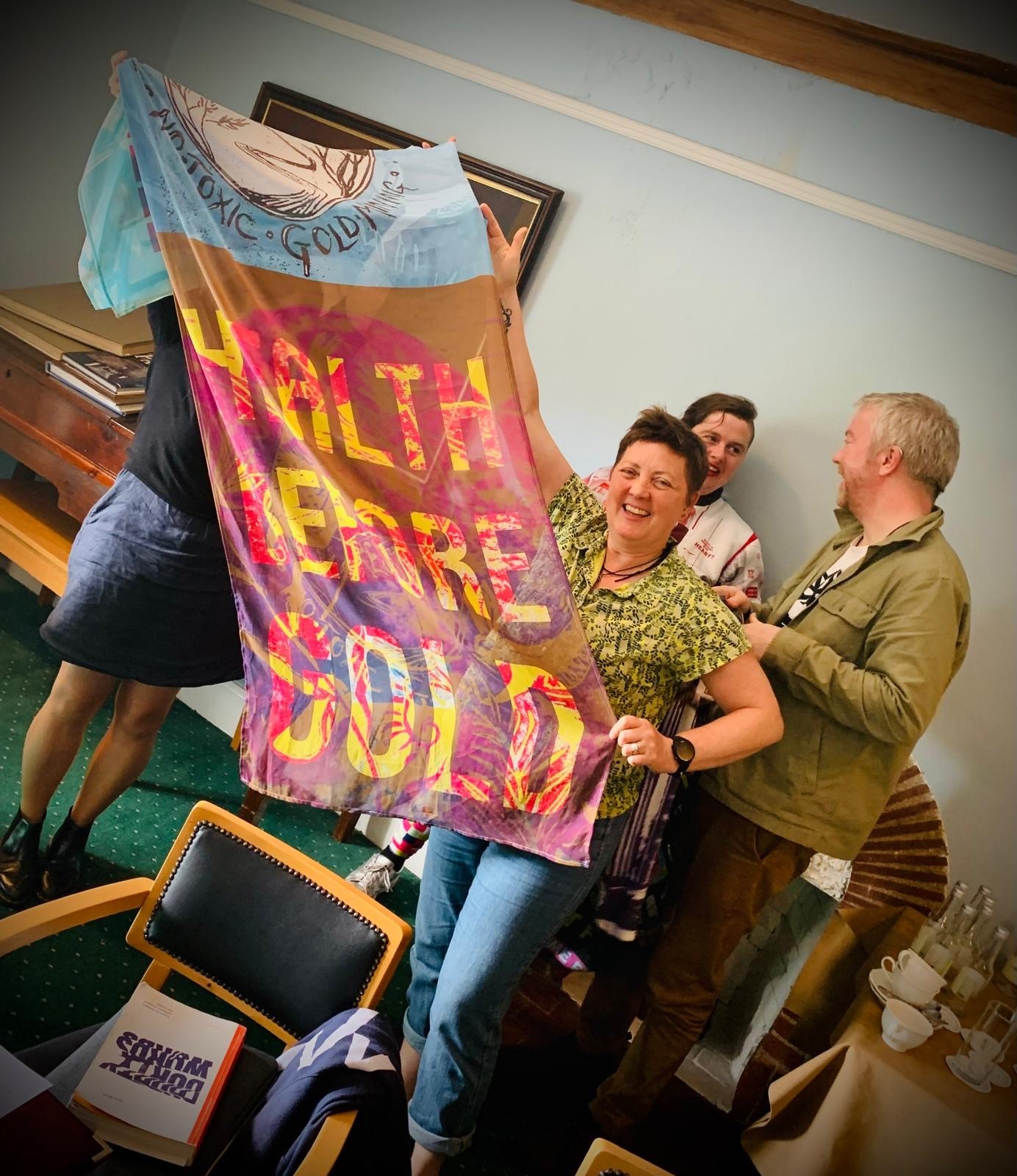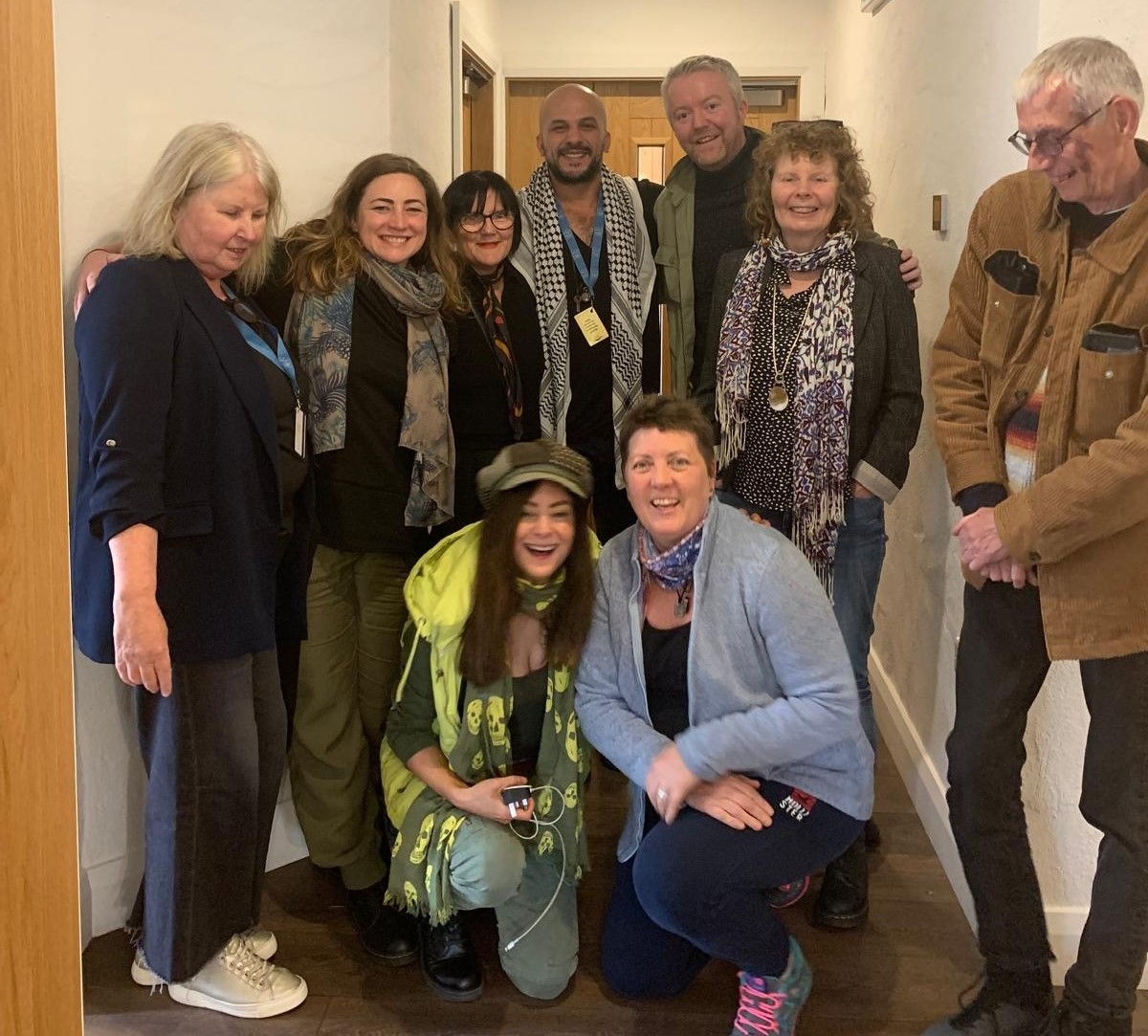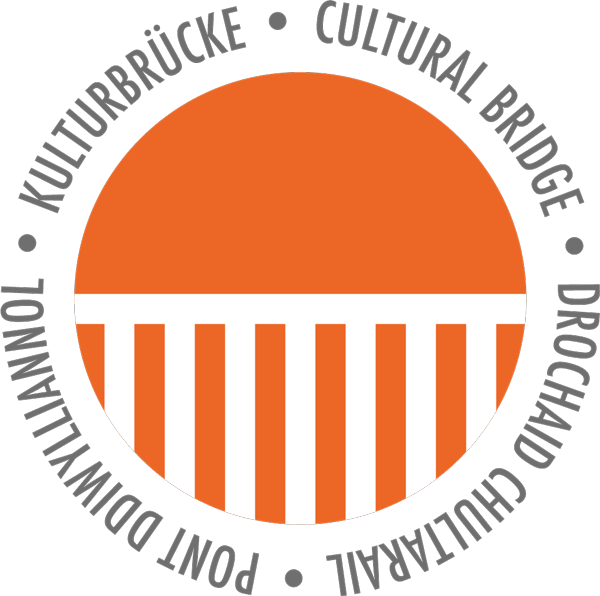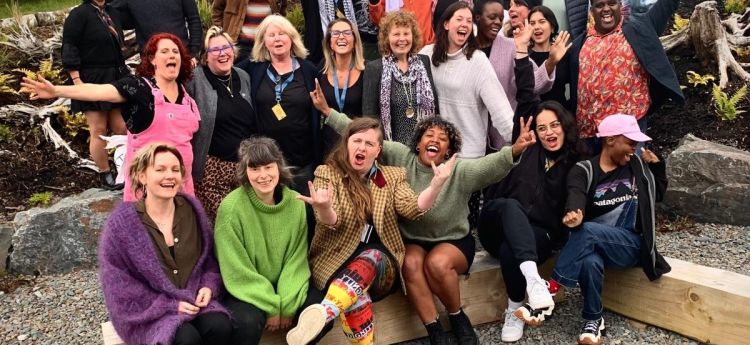Co-designing an arts project through a partnership between the artist, the arts organisation and a group of community activists is, by its nature, challenging. The Berlin-based artist Khaled Barakeh of coculture engaged openly with activists from a variety of social movements and the MAC (Belfast) at a long weekend in Connemara, on Ireland’s West coast. Together we co-designed proposals put forward for application in the MAC’s largest gallery.
The starting point was a series of presentations Blueprints for Change designed by 15 artists, who were participating at the Summer School on Collaborative Practice and Social Change led by Create, the national development agency for collaborative arts (Ireland) and Counterpoints (UK). Over six days they were facilitated by three guest practitioner Ismail Einashe, Investigative Journalist and Cultural Activist, Khaled Barakeh, Socially Engaged Artist and Founder/Director, coculture and Kate O’Shea, Socially Engaged Artist and Cultural Activist. They imagined what utopia might be and feel like, asking challenging questions: What if everyone was equal and no one was exploited by businesses and the capitalist system? What if the mega rich ‘donated’ all bar 1% of their wealth? What should our society look like?
The next day, Khaled explained his project, which considers the gap between people in Northern Ireland – envisaged in the iconic Derry sculpture from Maurice Harron, ‘The Hands Across the Divide’, in which two figures seek to engage, but their hands offered in friendship do not quite meet. What would it take to bring the hands together and what sits in the gap between?
Khaled’s exhibition, ‘The Shake’, opens at the MAC in Belfast on 9th August, but what is the content of that gap between people and what is its context? What are the roles of graffiti, flags and the so-called ‘Peace Walls’ in perpetuating division and tension? How can we move towards utopia? The guiding principles for the conversations encouraged everyone to consider three questions posed by artist Kate O’Shea: Who is it for? Where does it come from? How much is enough?

Should we look more towards the past and how things used to be done, learning from ancestral knowledge, the Celtic calendar and traditional collective structures of society that pre-dated capitalism? Might we present those stories of the past through a museum of other ways of doing things, along with the history of colonialism, or presenting a movement of radical love that embeds the connectivity of people? Can we tell stories through the history of a meal or the history of land to illustrate that society is structured differently today than in the past? Yet even today we live in each other’s shadows – and in the shadows of ‘peace walls’.
Given the focus of young people on electronic gaming, can we facilitate ‘revolutionary gaming’, or using gaming technology to ‘design’ a fairer society, or for the MAC to host a giant assembly for young people?
An art exhibition is connected to its location, physically and culturally. An arts centre needs to feel welcoming, not only through who it invites and welcomes, and what it displays, but also how it feels to those who visit. Representing diversity in everything it does and how it looks is core to this.

The Shake exhibition by Khaled Barakeh and social project, co-designed with activists from Northern Ireland, and artists attending Create and Counterpoint Arts Summer School, opens at the MAC (Belfast) on 9th August – 27th October 2024.
The co-design team included artist and activist Khaled Barakeh of coculture, Berlin; Caroline Boyle and Magz Gibney of Start360 and Engage Women’s Service; Heather Floyd of Forthspring Inter Community Group; Jane Grace, creative writer; Rory Doherty of Voicing the Void; Elaine Forde of MAC Belfast; Paul Gosling, writer – plus Aine O’Brien of Counterpoints and artist Kate O’Shea.
Images: Jane Grace
The Shake is a 2024 - 2025 Tier 2 partnership between The MAC (Belfast, Northern Ireland) and coculture (Berlin, Germany), find out more.

